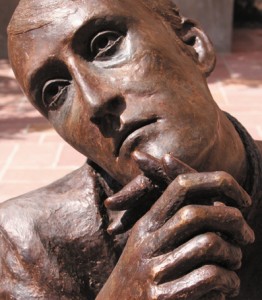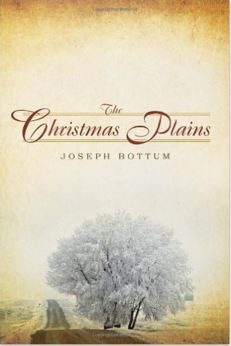
For the English poet Gerard Manley Hopkins, the year 1866 was marked by introspection and transformation. On January 18, 1866, he composed his poem The Habit of Perfection, which hailed the virtue of ascetism. Five days later, on January 23, he included poetry in a list of things he planned to give up for Lent. And by July, against the wishes of his family, he had decided to leave his native Anglicanism for the Catholic Church.
That September, he traveled to Birmingham to consult with John Henry Newman, leader of the Oxford converts; and he was received into the Catholic Church on October 21, 1866.
Here, for your reading entertainment, is the introspective poem The Habit of Perfection, at which Hopkins toiled as he worked through his spiritual confusion and sought holiness through sacrifice.
The Habit of Perfection
ELECTED Silence, sing to me
And beat upon my whorlèd ear,
Pipe me to pastures still and be
The music that I care to hear.Shape nothing, lips; be lovely-dumb:
It is the shut, the curfew sent
From there where all surrenders come
Which only makes you eloquent.Be shellèd, eyes, with double dark
And find the uncreated light:
This ruck and reel which you remark
Coils, keeps, and teases simple sight.Palate, the hutch of tasty lust,
Desire not to be rinsed with wine:
The can must be so sweet, the crust
So fresh that come in fasts divine!Nostrils, your careless breath that spend
Upon the stir and keep of pride,
What relish shall the censers send
Along the sanctuary side!O feel-of-primrose hands, O feet
That want the yield of plushy sward,
But you shall walk the golden street
And you unhouse and house the Lord.And, Poverty, be thou the bride
And now the marriage feast begun,
And lily-coloured clothes provide
Your spouse not laboured-at nor spun.
Gerard Manley Hopkins was born to an artistic and deeply religious English family. His father was a poet, his mother loved music and reading. His grandfather was a colleague of the poet John Keats, and his aunt taught him to sketch.
His poetry was not well known during his lifetime; but after his death, Gerard Manley Hopkins became one of the leading Victorian poets. His writing is often characterized by the unique “sprung rhythm,” which is structured around feet with a variable number of syllables, generally between one and four syllables per foot, with the stress always falling on the first syllable in a foot. The innovative formula never became a popular literary form, but it helped to revive an interest in accentual verse.
When Hopkins made the decision to enter the seminary and to become a Catholic priest, he did something which his readers now mourn: In his attempt to achieve true simplicity, he burned many of the poems he’d written in the years before that, and which he believed were too self-focused. Some early poetry escaped the furnace; and later, he again turned to verse–publishing works which extolled the greatness of God. Some analysts have sought to identify a homoerotic element in his works–even daring to find examples in his works about Christ; but Hopkins, while he may have experienced attractions to his own gender, remained continent throughout his life.
I first discovered the work of Gerard Manley Hopkins during my own graduate studies in the 1990s. This poem, “God’s Grandeur,” demonstrates for me that Hopkins need not have feared that his writing was too worldly, and proves that poetry can indeed be used to glorify God.
God’s Grandeur
The world is charged with the grandeur of God.
It will flame out, like shining from shook foil;
It gathers to a greatness, like the ooze of oil
Crushed. Why do men then now not reck his rod?
Generations have trod, have trod, have trod;
And all is seared with trade; bleared, smeared with toil;
And wears man’s smudge and shares man’s smell: the soil
Is bare now, nor can foot feel, being shod.And for all this, nature is never spent;
There lives the dearest freshness deep down things;
And though the last lights off the black West went
Oh, morning, at the brown brink eastward, springs—
Because the Holy Ghost over the bent
World broods with warm breast and with ah! bright wings















